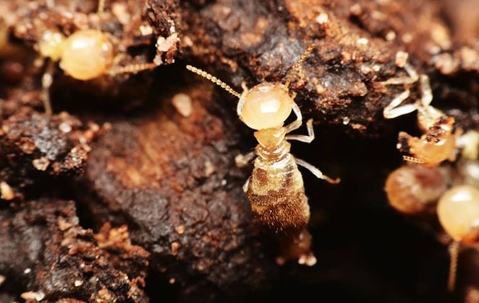There are many pests in Denver but only some of them are dangerous. Termites happen to be one of the local household invaders that don't cause much harm to humans. However, this doesn't mean they're completely innocent. Keep reading to learn more about whether or not termites are hazardous!
What Are Termites?
If you're not already familiar with termites, you should take the time to get acquainted. Termites are small, ant-like insects that eat materials rich in cellulose. There are two types of termites in Denver: subterranean termites and drywood termites. Subterranean termites live underground and tunnel into the wood in your home. Meanwhile, drywood termites live in the wood. Although you might not be able to tell the two types of termites apart, a trained technician can. Whichever type of termite you have, there's a guarantee you will suffer some consequences.
Once termites form a colony near your home, it's only a matter of time before they take over. These local pests breed quickly, growing in numbers at a surprisingly rapid rate. Furthermore, they eat constantly. When termites set up shop nearby, all of your wood building materials could be in danger.
Are They Dangerous To Humans?
Termites don't really bite people, and they're not known to transmit diseases. But you still don't want to live in a house filled with these insects. If you have allergies, you could react to their presence. At the very least, this makes you uncomfortable. So, are termites harmful? Yes and no. Termites aren't particularly harmful to you, but they are detrimental to your home. Every year, termite infestations cost property owners millions of dollars. When termites attack the structural elements in your home, they do more than cosmetic damage. They also put the people inside your home in danger.
One of the biggest issues with termites is the fact that they do unseen damage. In fact, you probably won't even realize termites are around until they do significant damage. This increases the cost of the repairs.
How To Limit The Danger And Destruction
If you don't want to be one of the many people in Denver to experience devastation at the hand of termite, you can do the following:
- Reduce Wood-To-Soil Contact: If any wood from your home is in direct contact with your soil, find a way to separate it. Only a concrete foundation should touch the dirt, or termites will find it easy to get inside. All of your sidings should be a minimum of six inches above the ground.
- Make A Four Inch Barrier: There should be a barrier from mulch, plants, and paper of at least four inches around your home. If necessary, pull out hedges and plants that encroach on the barrier.
- Reduce Soil Moisture: Keep your soil from being too wet and appealing to termites by making sure your storm drains are away from the foundation of your home. They should empty several feet away and should drain well after a rainfall. If you have any leaky faucets near your foundation, repair them as soon as possible. By reducing the moisture, you make your soil and home less appealing to termites.
- Keep The Lights Off: Termite season can be the start of your termite troubles. To protect your property, keep the lights off at night. Swarmers are drawn to the light and could decide to settle on your land.
- Know The Signs Of Termite Activity: It's also essential to know the common signs of a termite infestation. Be on the lookout for termite droppings, hollow-sounding wood, or warped windows.
If you do spot signs of termites, the best thing to do is contact your local Denver pest control professionals right away. Give us a call at White Knight PestControl, and our experts can handle the situation.
With our termite prevention program, you can rest easy knowing you're safe from termites. We offer customized termite control treatment methods and a free estimate. Call us today at White Knight Pest Control!

